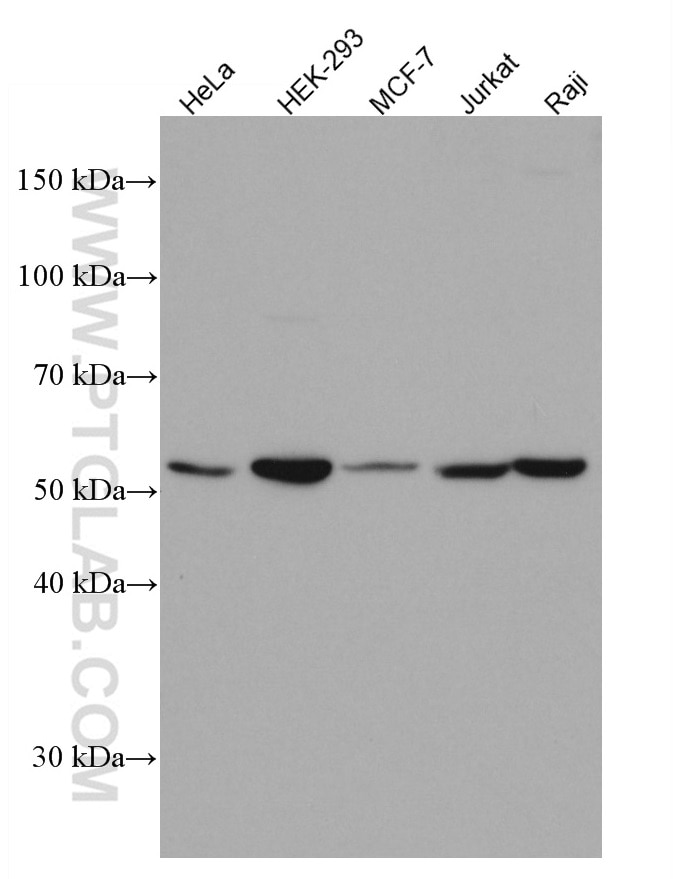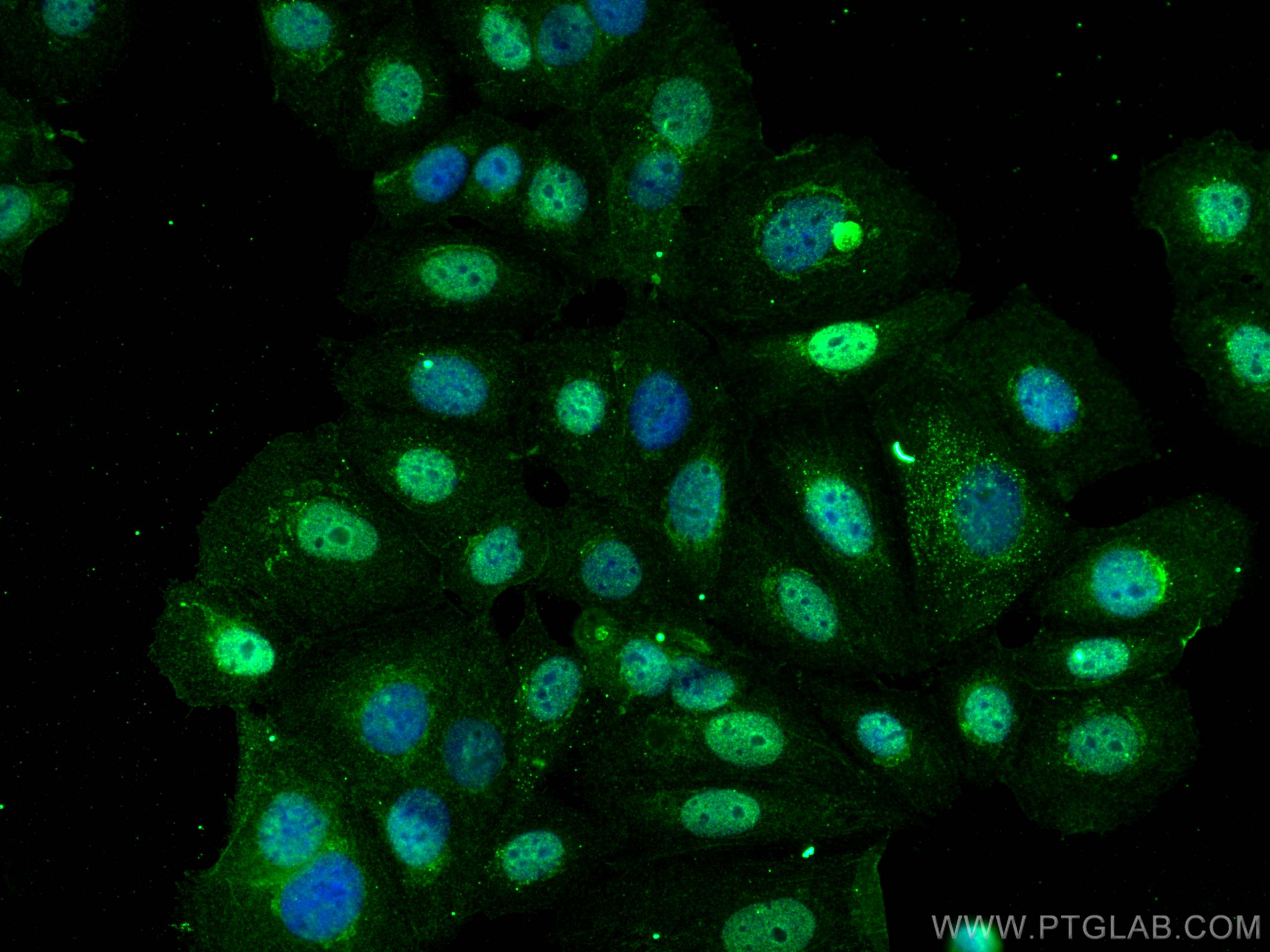KPNA2 Monoklonaler Antikörper
KPNA2 Monoklonal Antikörper für IF, WB, ELISA
Wirt / Isotyp
Maus / IgG1
Getestete Reaktivität
human
Anwendung
WB, IF, ELISA
Konjugation
Unkonjugiert
CloneNo.
2G9C1
Kat-Nr. : 66870-1-Ig
Synonyme
Galerie der Validierungsdaten
Geprüfte Anwendungen
| Erfolgreiche Detektion in WB | HeLa-Zellen, HEK-293-Zellen, Jurkat-Zellen, MCF-7-Zellen, Raji-Zellen |
| Erfolgreiche Detektion in IF | MCF-7-Zellen |
Empfohlene Verdünnung
| Anwendung | Verdünnung |
|---|---|
| Western Blot (WB) | WB : 1:1000-1:5000 |
| Immunfluoreszenz (IF) | IF : 1:400-1:1600 |
| It is recommended that this reagent should be titrated in each testing system to obtain optimal results. | |
| Sample-dependent, check data in validation data gallery | |
Produktinformation
66870-1-Ig bindet in WB, IF, ELISA KPNA2 und zeigt Reaktivität mit human
| Getestete Reaktivität | human |
| Wirt / Isotyp | Maus / IgG1 |
| Klonalität | Monoklonal |
| Typ | Antikörper |
| Immunogen | KPNA2 fusion protein Ag28386 |
| Vollständiger Name | karyopherin alpha 2 (RAG cohort 1, importin alpha 1) |
| Berechnetes Molekulargewicht | 57.8 kDa |
| Beobachtetes Molekulargewicht | 55-58 kDa |
| GenBank-Zugangsnummer | BC005978 |
| Gene symbol | KPNA2 |
| Gene ID (NCBI) | 3838 |
| Konjugation | Unkonjugiert |
| Form | Liquid |
| Reinigungsmethode | Protein-G-Reinigung |
| Lagerungspuffer | PBS mit 0.02% Natriumazid und 50% Glycerin pH 7.3. |
| Lagerungsbedingungen | Bei -20°C lagern. Nach dem Versand ein Jahr lang stabil Aliquotieren ist bei -20oC Lagerung nicht notwendig. 20ul Größen enthalten 0,1% BSA. |
Hintergrundinformationen
KPNA2 (karyopherin α2) is a nuclear import factor involved in the nucleocytoplasmic transport system. It is functionally involved in the tumor progression and is elevated in multiple cancers. KPNA2 expression may be a useful prognostic biomarker to monitor cancer prognosis.
Protokolle
| Produktspezifische Protokolle | |
|---|---|
| WB protocol for KPNA2 antibody 66870-1-Ig | Protokoll herunterladen |
| IF protocol for KPNA2 antibody 66870-1-Ig | Protokoll herunterladen |
| Standard-Protokolle | |
|---|---|
| Klicken Sie hier, um unsere Standardprotokolle anzuzeigen |



